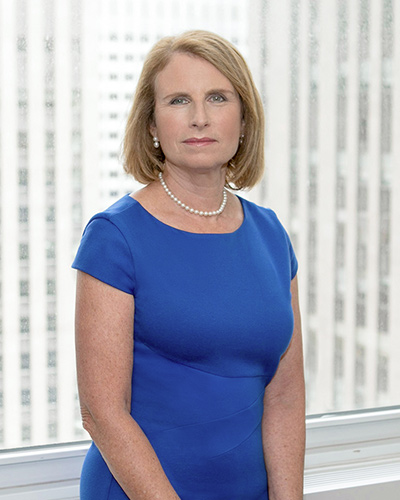By Lorraine Hariton, President & CEO of Catalyst

As President and CEO of Catalyst, a global nonprofit that works with some of the world’s most powerful CEOs and leading companies to help build workplaces that work for women, I am honored to introduce the 19th annual Women Worth Watching® issue of Profiles in Diversity Journal.
In a time of immense challenge and disruption, I am inspired to read the stories of the 67 women featured this year. Many have overcome personal and professional challenges to succeed in their careers, and they are strong role models for other women in their organizations and communities.
Not only am I inspired by these women’s accomplishments; I am also inspired by their diversity. They work in all industries and regions, and they represent a wide array of backgrounds, experiences, and skills that have shaped their careers. As the world prepares for a post-pandemic future, we must recognize that it is now more important than ever for companies to build inclusive workplaces in which all women can thrive.
I would be remiss if I didn’t acknowledge that it has been a challenging year for women, particularly women of color. The Covid-19 pandemic has upended the workplace—with millions of people now working from home, unemployed, or putting their lives at risk every day as essential workers. Many women are struggling to deal with the dual responsibilities of work and child- or eldercare. And women of color are especially experiencing disproportionate rates of job loss. Systemic inequities, stereotypes, and bias all contribute to the disproportionate negative impact of the pandemic on women’s lives and careers.
In addition to the pandemic, companies and leaders are also facing increased scrutiny of their diversity and inclusion practices as a result of global protests against racial inequity. Some companies have used these dual crises to reinvest in their diversity and inclusion efforts. Yet, even as some companies have made diversity and inclusion a priority, others have allowed these commitments to fall by the wayside.
Data show that coronavirus layoffs could erase many gains women have made in the workplace over the last decade. But Catalyst has identified several ways that companies can build more inclusive workplaces for women, both during and after the pandemic:
- Embrace remote and flexible work Particularly now, as women working from home experience increased domestic responsibilities like child- or elder care, companies must allow for flexible scheduling options to help employees manage work and life demands.
- Tackle inequities head-on Before making decisions about layoffs, leaders should review their data and examine strategies they can deploy to retain highpotential women. They should also plan now to rebuild their workforces with women in mind.
- Connect with empathy Empathy is not just a trait; it’s a critical future-of-work skill essential to building an inclusive work environment. Leaders who prioritize empathy will not only create stronger teams that allow women and other underrepresented employees to thrive; they also will prepare their organizations for the future.
Yet, even as we see some alarming trends for women in the workplace, we have reasons to be optimistic. A recent Catalyst survey revealed that seven in ten working people believe workplaces will accelerate gender equity in the wake of Covid-19. Half of respondents expect better economic prospects in the future.
I know from my own conversations with corporate leaders that they are committed to addressing the current moment and to removing barriers for women and other people of color in the workplace. They are sponsoring women into leadership and board positions; reevaluating recruitment, hiring, and talent management for gender and racial bias; and holding themselves accountable for achieving specific targets for representation in their workforce.
We’re also living through another important moment this year: The centennial of the 19th Amendment to the U.S. Constitution, which gave women the right to vote—although women of color remained disenfranchised over the following decades. Reflecting on this anniversary—and on the more than 2,000 Women Worth Watching featured by Profiles in Diversity Journal over the last 19 years—I am reminded again that broad cultural change for all women requires patience, persistence, and hard work. The 2020 Women Worth Watching represent the remarkable progress women have made toward equity over the last 100 years. They also represent the best of who we are today. I am excited to see how these leaders shape our future.

Lorraine Hariton
Lorraine Hariton is President & CEO of Catalyst, a global nonprofit working with some of the world’s most powerful CEOs and leading companies to help build workplaces that work for women. Lorraine’s extensive career includes senior-level positions in Silicon Valley, as well as leadership roles across the private, nonprofit, and government sectors. Catalyst’s vision and mission have long been a passion for Lorraine and she is honored to lead the organization at this crucial time and to help write the next chapter in its 56-year legacy of accelerating positive change for women.






